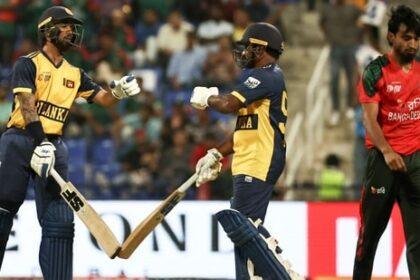Imran Khan‘s Scathing Critique of Pakistan Cricket Amid Asia Cup Defeat
In a striking commentary on the current state of Pakistan cricket, former captain Imran Khan has expressed his discontent following the national team’s recent loss to India in the 2025 Asia Cup. The match, held at the Dubai International Stadium, saw India triumph by six wickets, with Abhishek Sharma’s explosive 74 runs off just 39 balls playing a pivotal role in the victory. This defeat has reignited discussions about the leadership and management of the Pakistan Cricket Board (PCB), particularly under the stewardship of Mohsin Naqvi.
A Legendary Captain’s Disappointment
Imran Khan, who famously led Pakistan to its first and only Cricket World Cup victory in 1992, did not hold back in his criticism. Currently incarcerated on various charges, Khan’s remarks were relayed by his sister, Aleema Khan, to reporters. He suggested that the only way for Pakistan to secure a win against India would be for PCB chief Mohsin Naqvi and Army Chief Asim Munir to open the batting. This comment underscores his belief that the current leadership is failing the team and the sport.
Khan’s critique extends beyond mere performance on the field. He has previously accused Naqvi of “incompetence” and “nepotism,” claiming that these factors have severely undermined the integrity and effectiveness of the PCB. His comments reflect a broader sentiment among fans and analysts who feel that the PCB has not adequately supported the team in its quest for success.
The Match Breakdown
In the Super 4s match, Pakistan set a target of 172 runs, a total that seemed competitive but ultimately fell short. Despite the efforts of pacers Shaheen Shah Afridi and Haris Rauf, who had engaged in verbal exchanges with Indian batsmen, the bowling attack could not deliver the necessary breakthroughs. India chased down the target with seven balls to spare, further highlighting the disparity in performance between the two teams.
Khan’s remarks also included a satirical suggestion that former Chief Justice of Pakistan Qazi Faez Isa and Chief Election Commissioner Sikandar Sultan Raja should serve as on-field umpires to ensure fairness. This comment reflects his deep-seated frustrations with the governance of cricket in Pakistan, as well as the political undertones that often accompany sports in the country.
The Broader Context of PCB Leadership
Mohsin Naqvi’s leadership has come under intense scrutiny since the Asia Cup commenced. The PCB’s response to India’s refusal to engage in customary post-match handshakes has raised eyebrows, leading to allegations of bias against referee Andy Pycroft. The PCB’s subsequent threats to boycott the tournament if Pycroft remained in charge were met with indifference from the International Cricket Council (ICC), further exacerbating tensions.
Naqvi’s dual role as the Interior Minister of Pakistan adds another layer of complexity to his position. Critics argue that his involvement in politics detracts from his ability to effectively manage the PCB. The PCB’s failure to adhere to pre-match press conference protocols during the Asia Cup has also drawn criticism, suggesting a lack of professionalism and preparedness.
Upcoming Challenges for Pakistan
As Pakistan prepares to face Sri Lanka in a crucial match at the Sheikh Zayed Stadium in Abu Dhabi, the pressure is mounting. This encounter is being labeled as a “must-win” for the team, as they seek to salvage their campaign in the Asia Cup. The stakes are high, and the performance of the players, as well as the leadership of the PCB, will be under the microscope.
The historical rivalry between Pakistan and India adds an emotional weight to these matches, making victories even more significant for fans and players alike. However, the current state of affairs raises questions about whether the team can rise to the occasion under the existing management.
Conclusion
Imran Khan’s candid remarks serve as a wake-up call for the PCB and the broader cricketing community in Pakistan. His criticisms highlight the urgent need for reform and effective leadership within the organization. As the team gears up for its next challenge, the focus will not only be on the players’ performances but also on the structural issues that have plagued Pakistan cricket for years. The upcoming match against Sri Lanka will be a litmus test for both the players and the PCB, as they strive to restore pride and competitiveness in the international arena.











